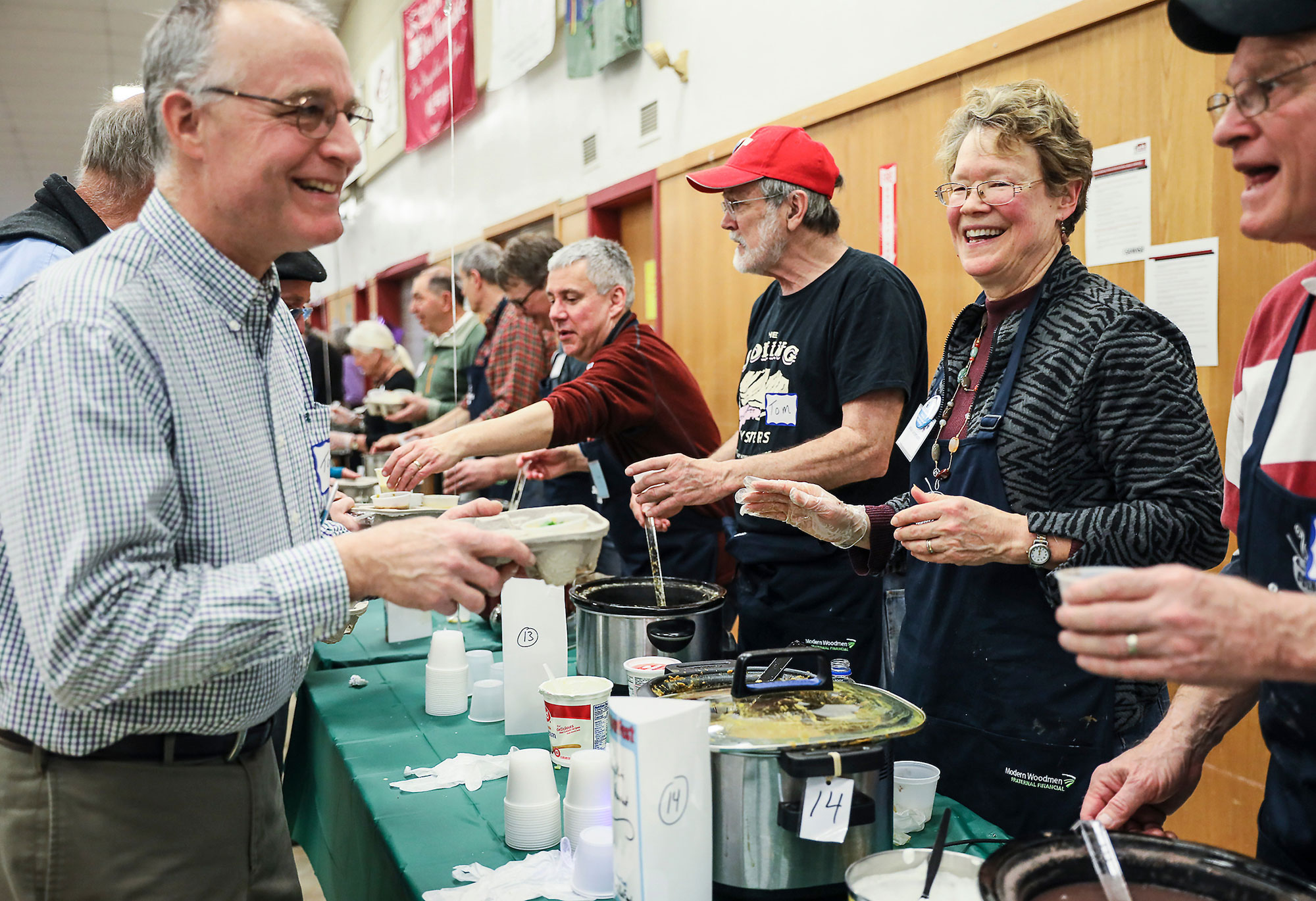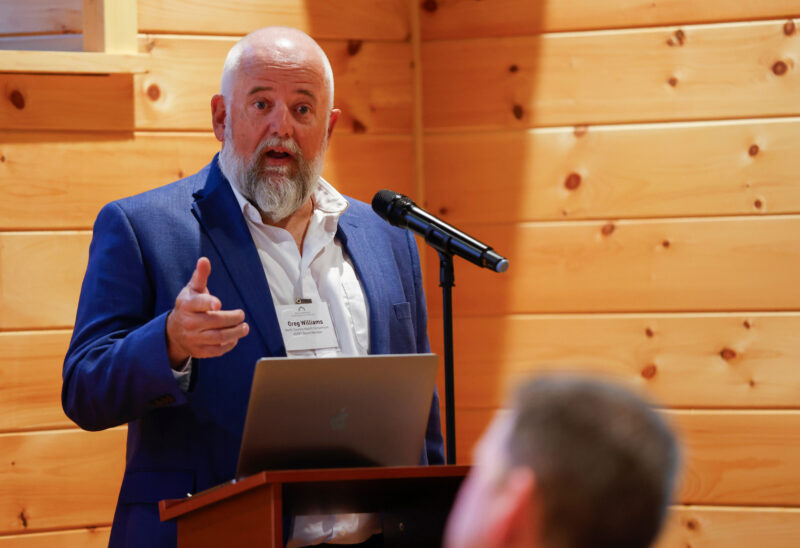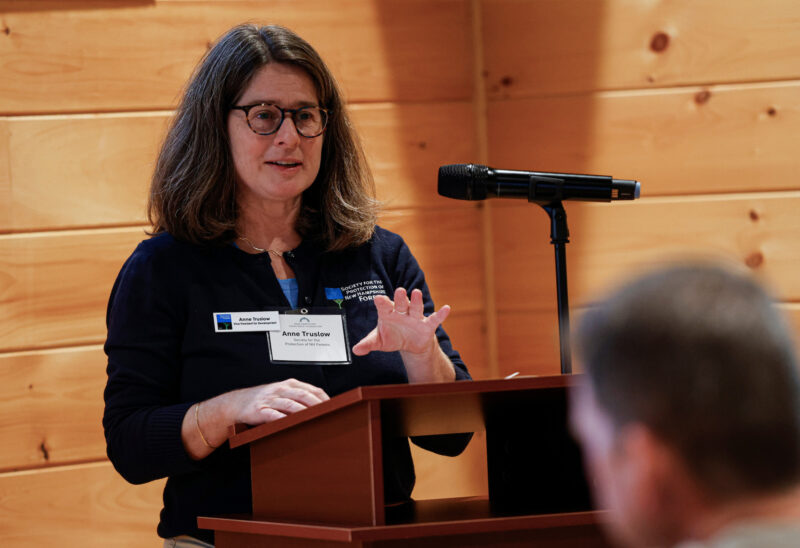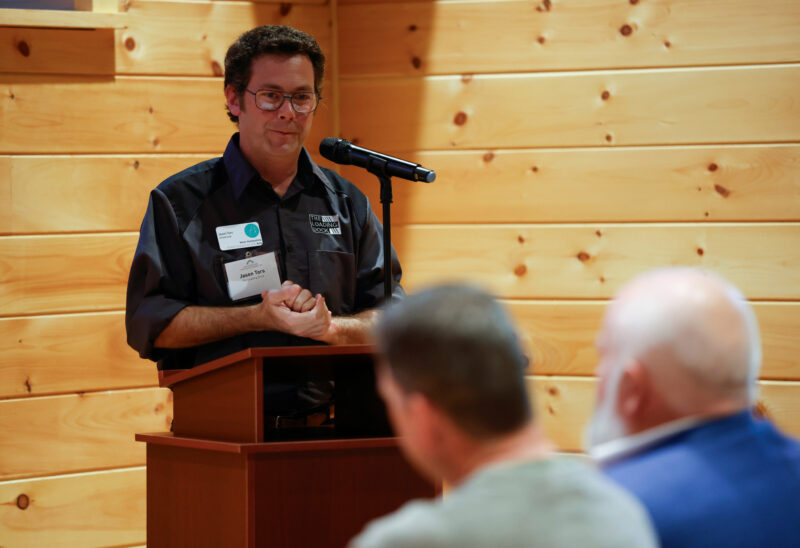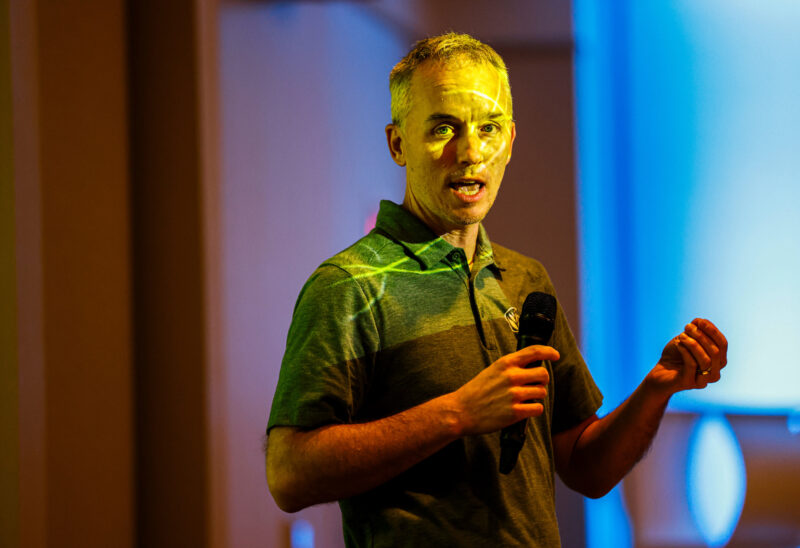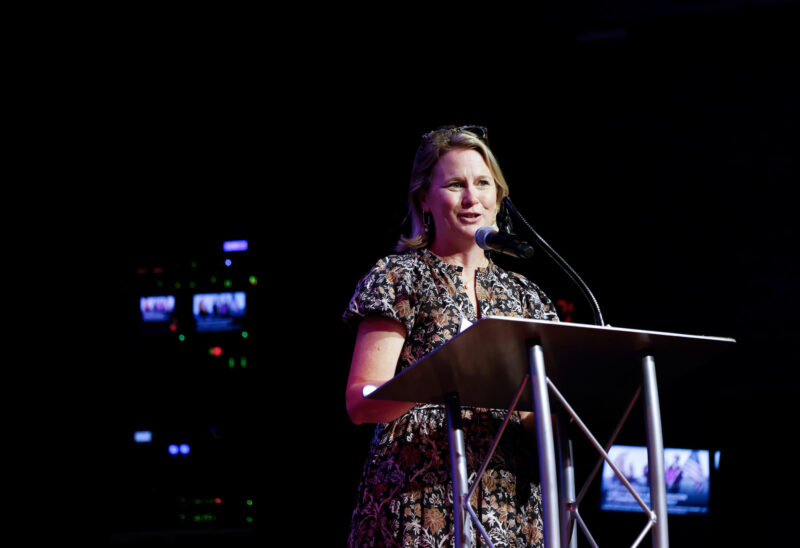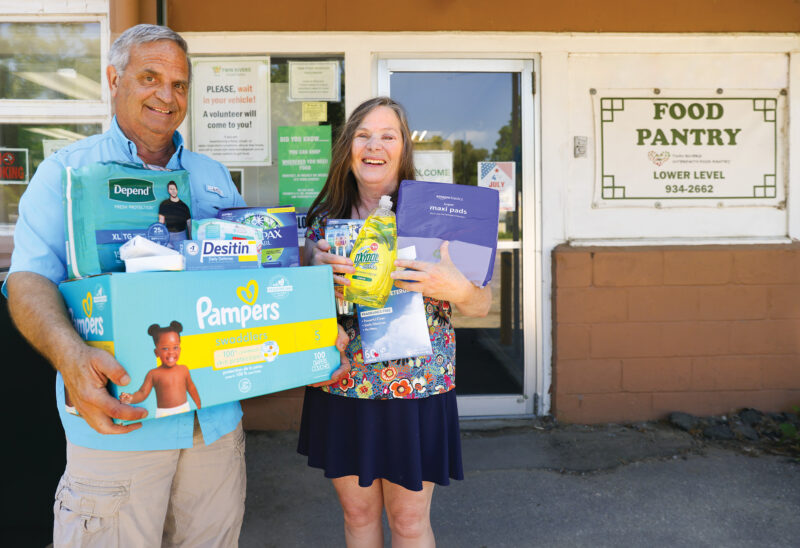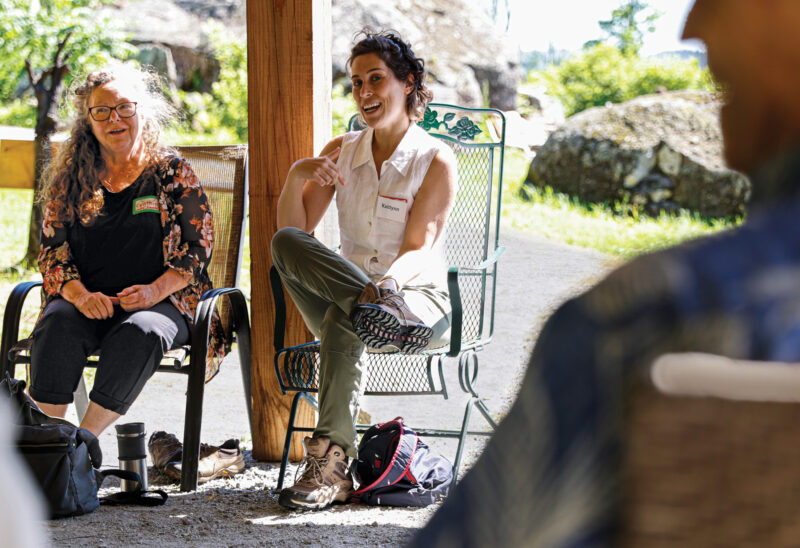The question was simple.
“Where would you be without the Concord Coalition to End Homelessness?”
The answers were frightening.
“I’d be freezing on the streets,” said Debby, who was warming up at the Coalition’s Resource Center on a blustery, below-freezing day in March. Piles of snow from the third major storm in two weeks surrounded the building.
“I’d probably be dead of an overdose,” said Grimm, who visits the center to grab a coffee, relax, meet with a caseworker to apply for an apartment and see a counselor to help him stay away from drugs and alcohol.
And Rick, who now has his own apartment after living on the street for seven years, does not hesitate. “To tell you the truth, I don’t think I would still be alive.”
Rick now volunteers at the center, helping Grimm, Debby and 35-40 people a day who seek refuge from the cold; get a warm shower and food; use computers; wash clothes; get minor medical attention and help with services such as Social Security, substance use counseling and permanent housing.
As valuable as it is, Coalition Executive Director Ellen Groh realizes the daytime resource center — and even a new overnight shelter about to open next door — are only a part of the goal of ending homelessness in Concord.
“We keep reminding people that this is not the answer at all,” said Groh. “This is something we have to do to keep people alive, but this is not the solution.”
And so the Coalition has taken the lead to implement Concord’s Plan to End Homelessness — shifting the focus to the development of a “housing first” approach that seeks to place chronically homeless individuals in secure, permanent housing while they work to address the issues that kept them homeless.
The Coalition has marshalled community leaders, businesses, social service agencies and financial backers to help meet immediate and longer-term needs.
Early Foundation funding supported efforts to bring community social service providers to the same table. Foundation funding also helped enable the Coalition to hire a full-time executive director at a time when the city was primed to make significant strides toward ending homelessness.
With the leadership of Mayor Jim Bouley, Concord’s Plan to End Homelessness was approved in 2014, and the Coalition went from running a part-time day resource center to building a community coalition that would work toward implementing the goals of that plan.
The Coalition expanded its Resource Center and launched “Housing First Concord,” its comprehensive supportive housing program for people experiencing long-term homelessness. So far, 15 formerly homeless residents have moved into private apartments or public housing, with rental assistance and support from caseworkers. The Coalition is working with partner agencies to ensure that all people who are chronically homeless in New Hampshire’s capital city (an estimated 50-60) have access to stable housing and the support they need to stay in it.
An essential part of building a community-wide coalition was for Groh to be able to step away from trying to solve the problem of how to provide temporary shelter and lay the groundwork for permanent housing solutions.
“If we are going to end homelessness, that’s what we need to do, and we need more resources to do that,” Groh said.
She said that Foundation funding was critical in helping address problems systemically.
“The Foundation was willing to take a risk when they funded our work under the Plan to End Homelessness,” Groh said. “It was somewhat intangible — more than a shelter, or a resource center — it was a project with a pretty wide scope that would bring all of these pieces together,” she said. “It’s very difficult to find funding for this sort of work.”
But at the same time as it was working systemically, it became clear that the Coalition would also need to provide more bricks-and-mortar services. The First Congregational and South Congregational Churches, which had for years marshalled volunteers to provide emergency overnight winter shelter, were no longer able to shoulder that burden alone. The Friends Program stepped up to run a temporary winter shelter, in space provided by St. Peter’s Church, but the city needed a long-term solution.
So the Coalition undertook a project that rallied the Concord community to action: Safe Spaces, a fundraising campaign to build a new, permanent cold-weather shelter and to support the operations of all of the Coalition’s programs for three years.
Foundation grants helped give the Coalition the stability and staff capacity to build that community support — and to secure more than $1.6 million in public funding, tax credits and other grants and gifts. NH Housing, the Lincoln Financial Foundation, the Granite United Way, the Concord Rotary Club, the City of Concord, Merrimack County and many others also provided critical support.
The campaign is now within sight of its goals, including a target of $528,000 in private donations, and the new cold-weather shelter is slated to open next winter.
“The Coalition has stepped up and grown to meet a critical community need, building broad community support to transform the way that Concord addresses homelessness,” said Deborah Schachter, a Foundation senior program officer who has worked closely with the Coalition. “The Foundation and its donors have been really proud to be part of this groundswell of community engagement to help vulnerable people live with dignity.”
Back at the Resource Center, Debby, who spent several nights this winter shivering in the snow, said the Coalition’s work means she has a safe place during the day, and some stability as she seeks out job interviews.
“The clothing, the food, the warmth. All of that is amazing,” she said. “When you have nothing, little things become huge.”
Groh measures the Coalition’s success by looking at huge things, such as widespread community support, but also at little things — like goldfish.
Remember Rick, who now lives in an apartment in Concord? He wanted to celebrate the first anniversary of moving off the street by getting a pet. The rent surcharge was too expensive for him to get a cat, but when a neighbor gave him a fish tank that was being thrown out, he got two goldfish.
Not a big deal for most people, but Groh called it a huge milestone for Rick. It meant he was stable enough to care for another life — even a pair of goldfish — and not just worry about how he would stay warm or find his next meal.
“It means to me that I can make them safe with each other by keeping the water clean and feeding them,” Rick said.
The Coalition helped Rick build a life for himself that includes permanence, safety and stability.
“There are no words to describe the greatness of what they did for me,” he said.

